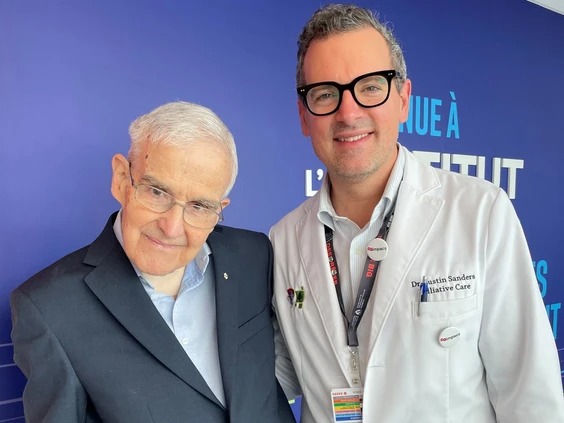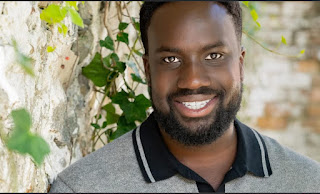
Dr. Balfour Mount, a pioneering force in the development of palliative care in Canada and internationally, passed away peacefully around 10 p.m. on September 25. He was 86 years old. Fittingly, he spent his final moments in the palliative care unit bearing his name at the Royal Victoria Hospital, part of the McGill University Health Centre.
The man considered the father of palliative care was a practising urologist and surgical oncologist at the Royal Victoria when he heard a lecture by Elisabeth Kübler-Ross, author of the 1969 book On Death and Dying. “She drew welcome attention to the fact that, in Western culture, we deny death and are very uncomfortable with the topic and we don’t treat the dying person with openness,” Mount recalled in a 2020 interview with McGill News. “That made a big impression on me, working as a cancer surgeon at the Royal Vic.”
In 1973, as he put it in another McGill article, “I helped conduct a study on how people die at the Royal Vic.” His findings, reported in the journal Urology, highlighted patients’ desire for openness and honesty in diagnosis and prognosis, a reluctance by physicians to be sufficiently candid, and a relative lack of concern around patients’ emotional needs by young doctors in residency training. The findings, as the Ottawa native said in an interview with Queen’s University, from where he earned his medical degree in 1963, became “an odyssey in which the dying and their families became my teachers.”
He visited St Christopher’s Hospice in London, England, to learn from its founder, Dame Cicely Saunders. Realizing that, in Canada, most people die in institutions and so a hospice model was not practical, his solution was to try to duplicate it in a hospital.
The Royal Victoria board agreed to a two-year pilot project in 1975 — a comprehensive clinical program for end-of-life care in a teaching hospital. It included a home care program that cared for about 100 patients in the community daily, a 12-bed unit staffed by a multidisciplinary team, a consultation service to active treatment programs, a bereavement followup program, teaching and a research arm to evaluate the project’s impact on patients and their families.




